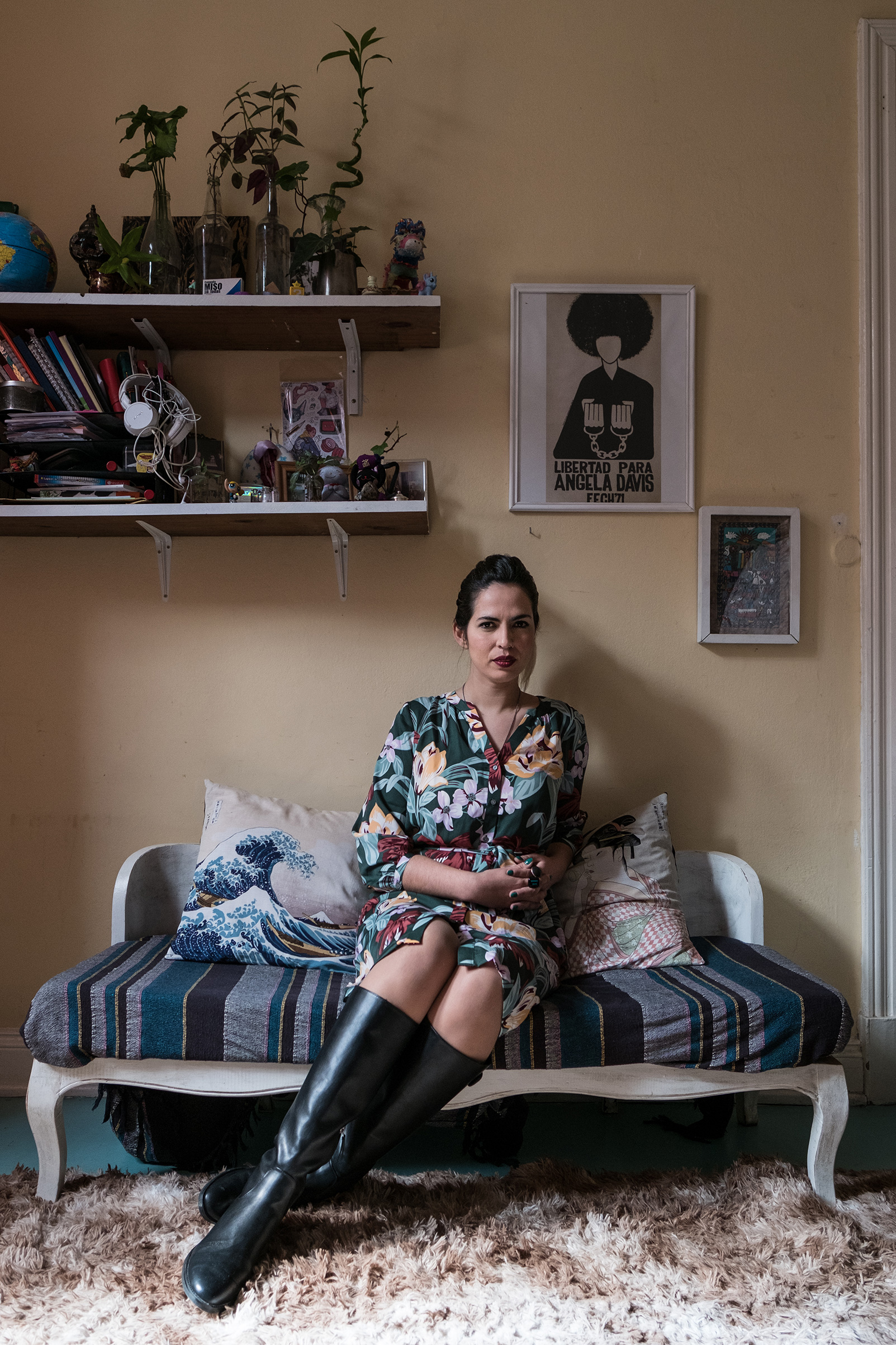Sabrina Cartabia is wearing bright green nail varnish when she speaks to TIME from her home in Buenos Aires, Argentina.
“We see it here as the color of hope,” she says, reaching for an emerald-colored flag emblazoned with the image of a clothes hanger—a common symbol at reproductive rights rallies because of its association with women who have no choice but to perform illegal abortions on themselves.
Just a few weeks earlier, Cartabia, 33, had carried the flag in a massive demonstration in Buenos Aires on August 8, as Argentina’s Senate voted on an historic bill to legalize abortion during the first 14 weeks of pregnancy. The birthplace of Pope Francis, Argentina is heavily influenced by the Catholic Church, which lobbied intensely against the bill. “It is hard for us—we are second class citizens,” Cartabia says.
Despite weeks of impassioned campaigning for a yes vote, and plenty of international attention, the country’s conservative-leaning Senate ultimately rejected the bill. That means abortion remains legal only in cases of rape or when a mother’s health is in danger. And across the 34 countries of Latin America and the Caribbean, only Cuba, Puerto Rico, Uruguay and Guyana have broadly legalized abortion, and six countries have a total ban.
But for Cartabia, a lawyer and women’s rights activist who represents a younger generation of Argentine women, the momentum is now unstoppable. Since 2009, she has been a vocal figurehead of Argentina’s women’s-rights movement, working on issues like promoting broader sex education to help reduce gender violence.

“Part of our work is to point out when our leaders are failing,” she says. Although her initial legal training was in taxation law, Cartabia found herself drawn to family law and women’s rights, when she began defending incarcerated women from the poorer neighborhoods surrounding Buenos Aires.
In advance of the abortion vote, Cartabia worked closely with legislators to draft arguments, and was also invited to present evidence to the National Congress to support the bill, speaking about her own personal history. “My great-grandmother died in a clandestine abortion in the 1940s,” she tells TIME.
Cartabia also delivered to Congress women’s testimonies on abortion. They were collected through a successful social media campaign run by her own women’s rights organization, Red de Mujeres (RDM), or Women’s Network.
Founded in 2014 and working with 300 women around Buenos Aires, RDM came about as “a way to give women tools to help each other with cases of violence, and to connect,” Cartabia says. It was also forged out of her own experiences of working with victims of domestic violence. RDM works with poorer communities, offering support for women seeking abortions, strengthening the role of women in their neighborhoods and liaising with other groups to make the city’s nightlife safer for women.
Argentine women suffer an unusually high rate of violence against women and girls, with 254 femicides alone in 2016. The issue gained widespread attention in 2015, when a 14-year-old girl was murdered by her boyfriend in the northeast of the country, sparking the Ni Una Menos (Not One More) marches and movement.
“Ni Una Menos made a complete difference in my country, because for many years, nobody wanted to talk about gender violence or do anything about it,” Cartabia says.
She became heavily involved in Ni Una Menos, and lobbied to bring the issue of abortion onto the movement’s agenda. Marches for abortion rights over the past year involved hundreds of thousands of women across the country and galvanized unexpectedly strong support for the bill. (In an Amnesty International survey earlier this year, around 60% of respondents said they supported the legalization of abortion.) That energy and urgency has spilled over into other countries across the region, such as Chile, Colombia and Brazil.
“It has a contagious effect,” says Cartabia, who has connections with members of feminist movements across Latin America. “People in other countries have started adopting our green handkerchief to support legalization.”
In Argentina, the fight is far from over. “For the winners, who didn’t want the bill to be passed, the win is bitter. But for us, the losers, it is actually a sweet moment,” says Cartabia, reflecting on the mass support for the bill, despite its defeat in the Senate. “The feminist movement now in Argentina is stronger than ever.”
- Donald Trump Is TIME's 2024 Person of the Year
- Why We Chose Trump as Person of the Year
- Is Intermittent Fasting Good or Bad for You?
- The 100 Must-Read Books of 2024
- The 20 Best Christmas TV Episodes
- Column: If Optimism Feels Ridiculous Now, Try Hope
- The Future of Climate Action Is Trade Policy
- Merle Bombardieri Is Helping People Make the Baby Decision